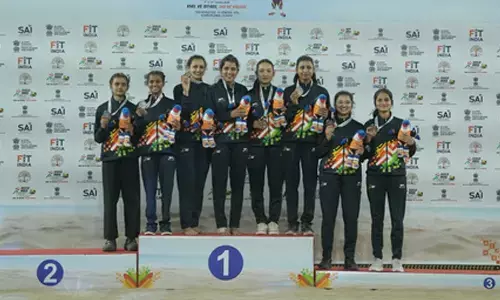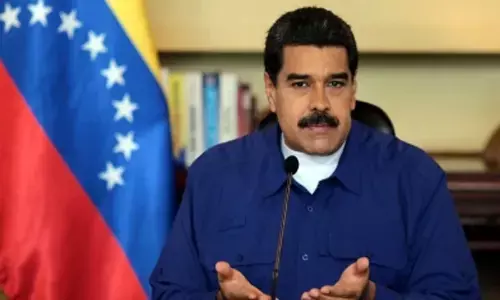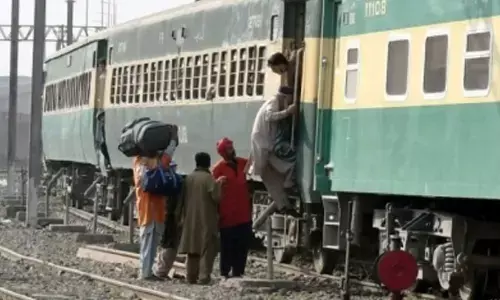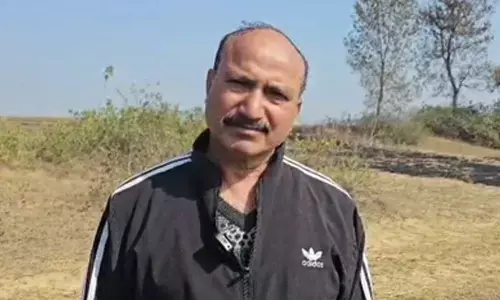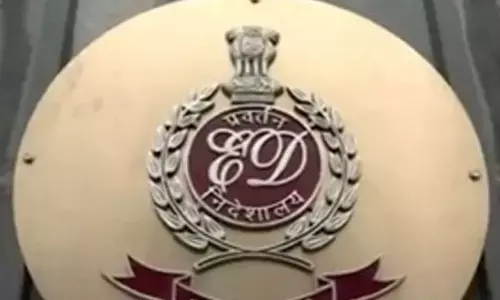Citizen-Friendly Telangana Municipal Act: One-off, transparent and well-conceived
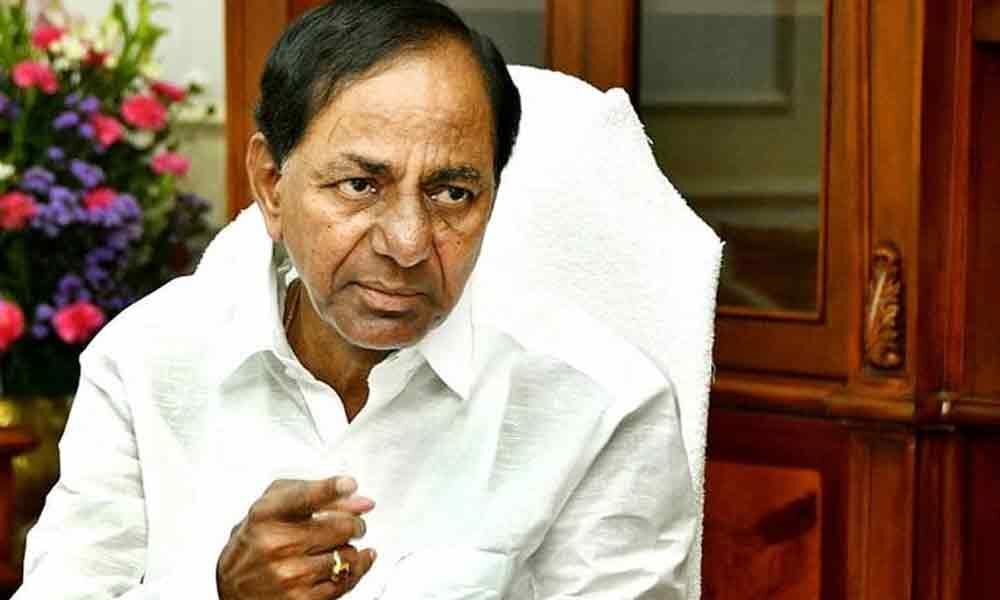
In a landmark legislation, both the Houses of State legislature passed Telangana Municipalities Act, 2019, replacing Telangana Municipalities Act 1965 and Municipal Corporation Act 1994, on Friday, July 19.
In a landmark legislation, both the Houses of State legislature passed Telangana Municipalities Act, 2019, replacing Telangana Municipalities Act 1965 and Municipal Corporation Act 1994, on Friday, July 19. They are awaiting formal assent of the Governor.
The Act has been finalised based on series of discussions with the concerned officers and experts by Chief Minister K Chandrashekhar Rao who literally steered its formulation, sentence by sentence.
Hyderabad Metropolitan region is the fastest growing urban conglomerate in the entire country. A total of 97 revenue villages within Outer Ring Road (ORR) over a period of time acquired urban features and were converted into 26 municipalities in 2018.
Seven of them namely Badangpet, Bundlaguda Jagir, Boduppal, Peerzadiguda, Jawaharnagar, Nizampet and Mirpet are now being converted into municipal corporations and they along with the Greater Hyderabad Municipal Corporation and Hyderabad Metro Development Authority will get focussed attention within the ORR.
Thus, there will be a total of 13 municipal corporations including Hyderabad.
The Telangana government created 68 new Urban Local Bodies (ULBs) in the year 2018 including the proposed seven municipal corporations.
The State thus will have a total of 141 ULBs including 13 municipal corporations.
Out of these, for the time being, 122 ULBs and 10 municipal corporations - the seven newly formed ones and Karimnagar, Ramagundam and Nizamabad Corporations - are due for elections.
The authorities will announce dates of elections as per the new Act resting with the government only.
Until the new Act is passed, Telangana is governed by the provisions of five Acts. The government felt that some of the provisions in these Acts are archaic and have lost relevance, requiring legislation for improvement.
More importantly, the citizens are facing problems in urban areas and the situation has come to such an extent that corruption in urban local bodies is deeply institutionalised and has become more of a norm than an aberration.
K Chandrashekar Rao and his government are committed to bring in an institutional mechanism through a legislation which will have zero tolerance to corruption, will enable complete transparency, use technology and provide service delivery in a timebound manner by minimising the interaction with municipal staff and will be based on greater degree of trust on citizens.
This will be done through a mechanism of self-certification coupled with strict compliance and exemplary punishments in cases of wrong declarations with mala fide intentions. All these features are incorporated in the new legislations.
The GHMC Act 1955 and HMDA Act 2008 however, will remain as they are for the time being. The salient and important provisions of the new Telangana Municipal Act 2019 are quite interesting.
There shall be compulsory training and orientation for all chairpersons and ward members to make them aware of the Act at regular intervals.
An "Urban Centre of Excellence" will be established which will not only impart training but will also be a hub for urban sector innovations and shall act as an urban research centre.
In order to ensure the people's engagement in the development process of municipalities, four ward committees shall be constituted in every ward separately representing youth, women, senior citizens and others including members of Self-Help Groups as well as Resident Welfare Associations and other such interest groups from the ward.
They will not only monitor the sanitation and greenery in the ward but will also advise the municipality on matters pertaining to their ward.
A district level committee headed by the District Collector and consisting of the DFO (Social Forestry) and concerned Commissioner will prepare municipality-wise Green Action Plan within each district.
The green budget shall not be less than 10 percent of the municipal budget.
The municipalities represented by the Municipal Commissioners will have a defined job chart which include construction and maintenance of roads, drains and other infrastructure work; ensure proper water supply; ensure sanitation; solid and liquid waste management; ensuring house to house garbage collection; regular sweeping of roads; safe transportation of waste; slum improvement and upgradation; maintenance of night shelter for urban homeless; provision of bus shelters; maintenance of burial grounds and Vaikuntadhamam and electrical crematoriums; maintenance of street lights, parking places and road medians; regulation and management of slaughterhouses and any other State function and responsibility as entrusted by the State government from time to time. The Municipal Commissioner and all the employees of municipalities shall work under the direct control and superintendence of District Collector.
In order to bring transparency in Property Tax collections and provide ease of transactions to citizens, the calculation of Property Tax will be unit based and citizens will be able to file it online based on self-certification method regarding the area and its usage and accordingly the Property Tax will be levied.
While the State government would like to have greater trust on its citizens, there will be a system of strong deterrence including heavy penalty in cases where the self-certification is false or incorrect deliberately.
All certificates and copies of certificates as required from the municipalities such as birth certificate, death certificate, land use certificate, child name inclusion in birth certificates and corrections in the certificates shall be issued online in a timebound manner after the individual has furnished self-certification along with required documents wherever necessary.
There will be a revised procedure for door numbering.
Budget for the municipality will be planned in a systematic manner to take care of its obligatory requirements and developmental works so as to ensure a balanced overall healthy growth. District Collector shall be a part of budget preparation exercise of the municipality.
The State government shall provide a matching amount equal to the municipality wise devolution under the Finance Commission, over and above the own resources of the municipality. Any deficit in the matching grant contribution from the State government shall be carried forward to the next year.
In order to overcome the difficulties associated with building permissions, the citizens can now obtain the building permission easily and hassle free without visiting Municipal Office or getting contact with any of the Municipal Officials.
There are different procedures prescribed for different areas of plots including time limits. In order to have effective enforcement of layout and building rules and regulations, it is proposed to constitute a Special Task Force at district Level under the chairmanship of District Collector, to detect, monitor and control unauthorised layouts and unauthorised constructions.
In case of deviations, the violated portions will be demolished without any notice. To encourage planned growth in new areas, the government has come up with new Integrated Township Policy.
New Municipal Act is brought out which is in tune with changing times and addresses effectively the aspirations of urban Telangana.
The new Act would be not only the most transparent Act aimed at zero tolerance for corruption and delays, but also the most powerful Act in terms of inbuilt mechanisms to ensure accountability and minimising citizen discomfort points.
(The author is CPRO to CM, Telangana)








